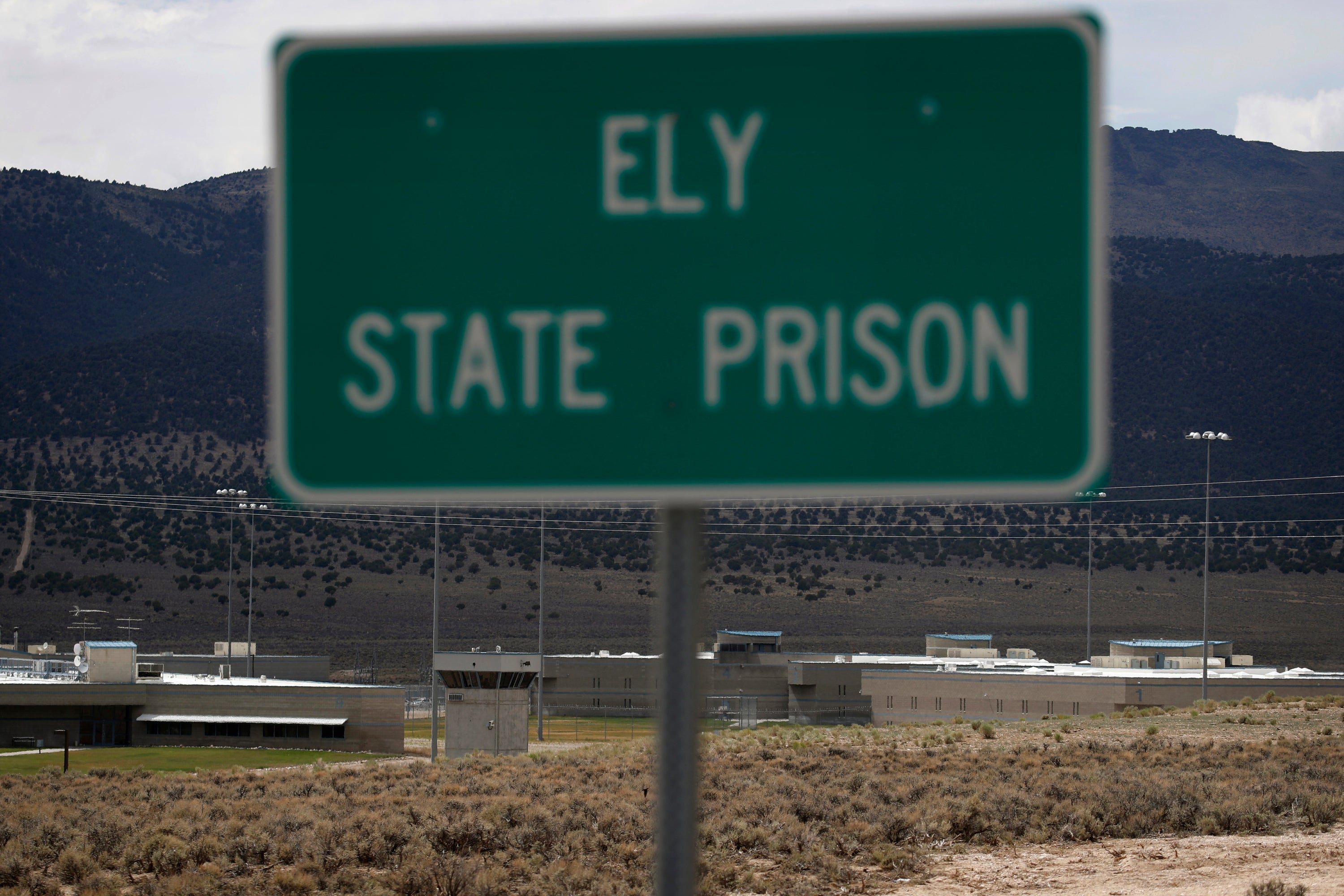1 of 3 killed in Nevada prison brawl was white supremacist gang member who killed an inmate in 2016
Authorities say one of three incarcerated people killed in a Nevada prison brawl this week was a member of a white supremacist gang serving a life sentence for his role in the 2016 murder of person in another Nevada prison

Your support helps us to tell the story
From reproductive rights to climate change to Big Tech, The Independent is on the ground when the story is developing. Whether it's investigating the financials of Elon Musk's pro-Trump PAC or producing our latest documentary, 'The A Word', which shines a light on the American women fighting for reproductive rights, we know how important it is to parse out the facts from the messaging.
At such a critical moment in US history, we need reporters on the ground. Your donation allows us to keep sending journalists to speak to both sides of the story.
The Independent is trusted by Americans across the entire political spectrum. And unlike many other quality news outlets, we choose not to lock Americans out of our reporting and analysis with paywalls. We believe quality journalism should be available to everyone, paid for by those who can afford it.
Your support makes all the difference.One of three inmates killed in a Nevada prison brawl this week was a member of a white supremacist prison gang who was serving a life sentence for his role in the 2016 murder of a person incarcerated at another Nevada prison, authorities said Friday.
The local county sheriff identified Anthony Williams, 41, as the third of the three people killed in Tuesday's fight at Nevada's maximum security prison in rural Ely. Nine other incarcerated people were injured.
Prison and state officials have released few details since then, although White Pine County Sheriff Scott Henriod confirmed Friday that “all three decedents involved in this incident died due to multiple sharp force injuries.”
“This is an ongoing investigation,” Henriod said in an email to The Associated Press.
The other victims identified earlier were Connor Brown, 22, of South Lake Tahoe, California, and Zacharia Luz, 42, of Las Vegas.
Luz was identified as a street-level leader of the Aryan Warriors white supremacist prison gang. He and Williams were among 23 reputed members of the gang who were indicted in a sweeping racketeering case in Las Vegas involving murder, drug trafficking and identity theft in 2019.
That indictment for the first time tied Williams and another person to the 2016 stabbing death of Andrew Ryan Thurgood in a cell at High Desert State Prison in southern Nevada.
Williams pleaded guilty to open murder in Clark County District Court in 2021 in a plea deal that took the death penalty off the table. He also was convicted of being a habitual offender and was sentenced to life without parole at the prison in Ely, about 40 miles (64 kilometers) west of the Utah line, the Nevada Department of Corrections said.
Luz was sentenced last year to seven to 18 years in prison for his conviction on felony racketeering and forgery charges, the department said.
Brown was serving a seven- to 20-year sentence for robbery with use of a deadly weapon, the department said. He was sentenced in 2021 after pleading guilty to stabbing a gas station clerk and a casino patron in downtown Reno in 2020.
Authorities have not said what prompted the violence at the prison this week. Henriod said sheriff’s deputies were summoned about 9:40 a.m. Tuesday to the prison.
No corrections officers were injured, the Nevada Department of Corrections said in a statement.
Ely State Prison is one of six Nevada prisons. It has almost 1,200 beds and houses the state's death row for convicted killers and a lethal injection chamber that has never been used. Nevada has not carried out an execution since 2006.
Conditions behind bars in the state have drawn criticism from advocates, particularly during hot summers and cold winters. In December 2022, several people incarcerated at Ely State Prison held a hunger strike over what advocates and some family members described as unsafe conditions and inadequate food portions.
Efforts stalled before reaching the state Legislature last year to respond to a yearslong state audit that found widespread deficiencies in prison use-of-force policies.